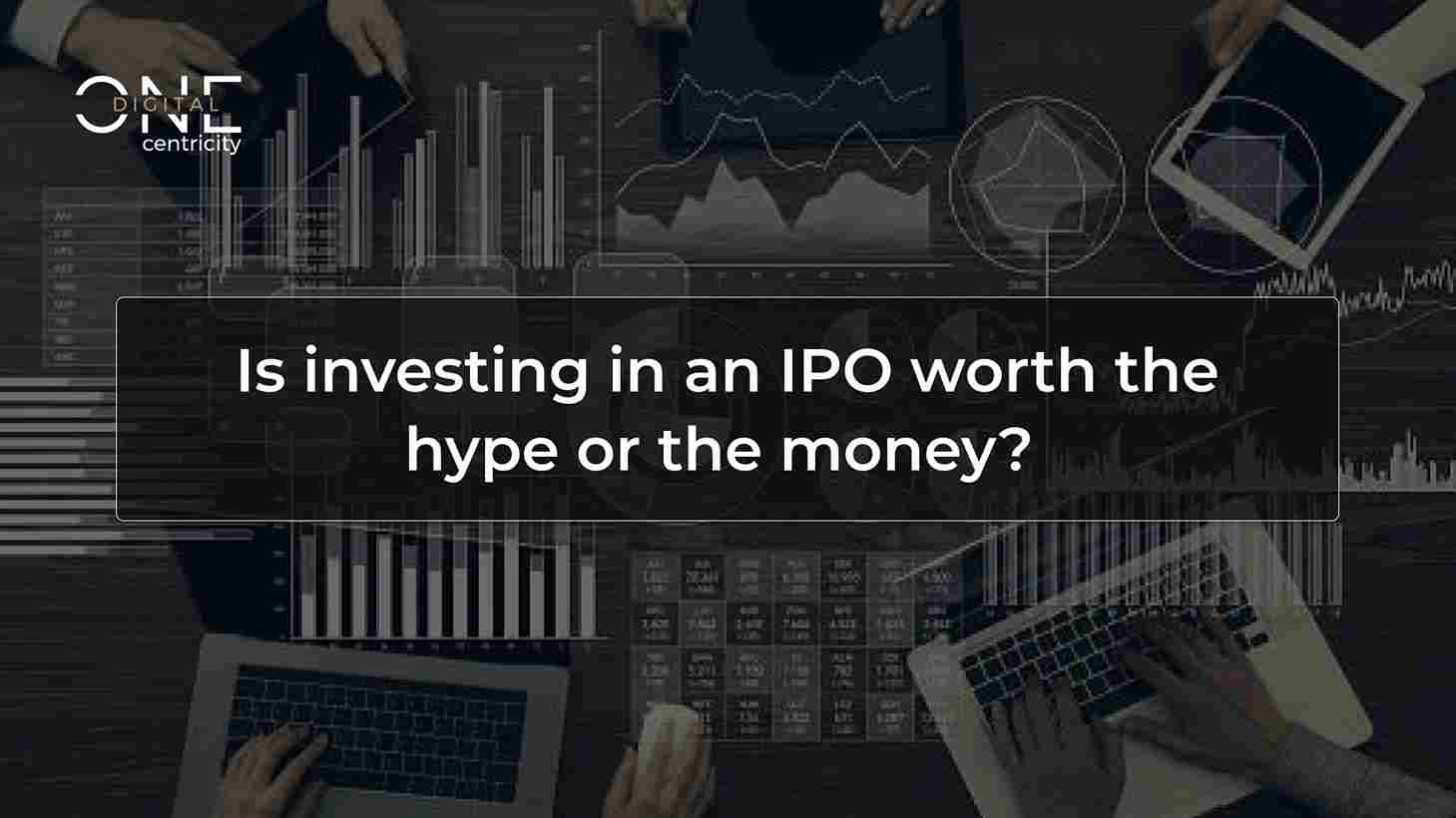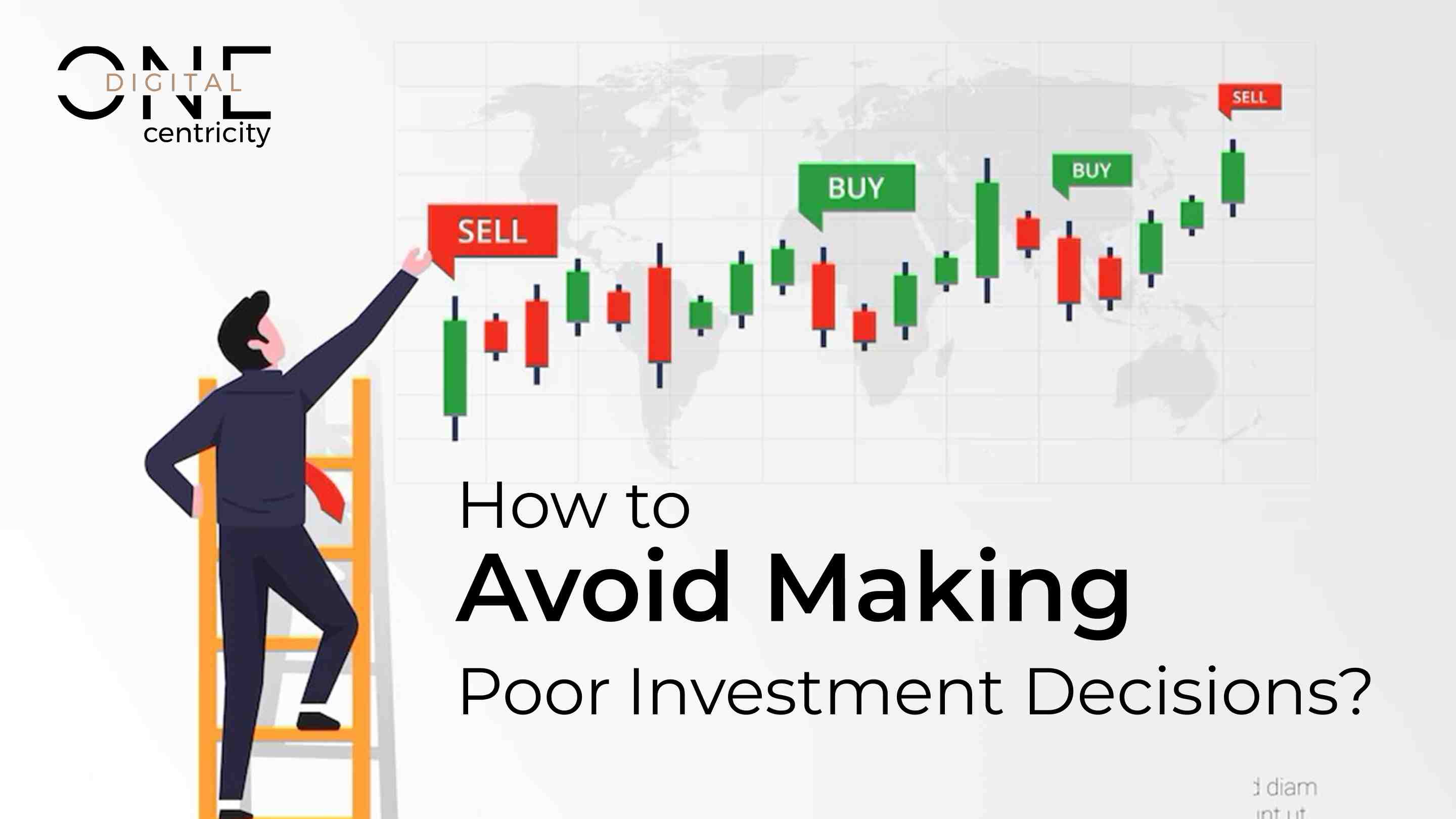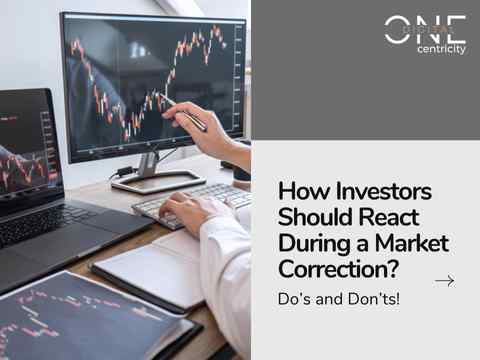Is investing in an IPO worth the hype or the money?
18th October 2023 | Author : Centricity

As we know, the financial market is filled with multiple options to get your investment journey started. An IPO is another excellent option. It is often a source of interest for individual investors when well-known or highly-regarded companies decide to become publicly traded and owned entities.
It is more of a significant milestone for a company as it shows its growth. However, there are a few considerations you, as an investor, should make while planning to invest in the IPO. In 2022 alone, 31 IPOs in India were listed, of which well-known companies like LIC and Delhivery were a part.
Expectations for such companies were set quite high, but unfortunately, they were categorized among the worst-performing IPOs of 2022. LIC, the ₹21,000 crore IPO, listed at a discount of 8.1% over the issue price. This teaches us a lesson don’t invest in an IPO just because it catches the public’s interest.
So, how do we figure out which IPO to invest in? Well, before that, let’s dive deep into this topic!
What is an IPO?
An IPO, or Initial Public Offering, is like a company's grand debut on the stock market. Imagine a small, private business throwing a big public party to raise money. In this party, the company offers its shares to the public for the first time. Anyone can come to the party and buy a piece of the company by purchasing these shares. It's like becoming a part-owner of the business.
For the company, an IPO is a way to raise a lot of money to grow and expand its operations. It's like getting a big financial boost. However, it also means the company has to share its financial details and business plans with the public and follow certain rules and regulations.
Investors can buy these shares, hoping their value will increase over time. But, just like any investment, risks are involved, and the importance of these shares can go up and down. So, an IPO is like a company's big coming-out party in the stock market world, where it goes from being a private business to a publicly traded one.
How does an IPO work?

Okay, but the main concern that remains unresolved is how to figure out which IPO would work best or not.
Well, let’s look at some considerations that you need before investing in an IPO:
1. Get insights on the company's financials/business model
Examine the company's financial statements, paying particular attention to the amounts of debt, revenue, and profit margins. Seek steadily increasing revenue and profits. Gain an understanding of the company's offerings, place in the market, and possibilities for expansion. Think about whether it is part of a promising industry.
2. Management Team
Evaluate the management team's background and performance history. Effective leadership is essential to a business's success.
3. Use of Proceeds
Look into the company's plans for the money it obtained from the initial public offering (IPO). Make sure it has well-thought-out plans for growth, debt reduction, and other objectives.
4. The market situation
Assess the state of the economy and the market at the moment. The state of the stock market and the economy as a whole can have an impact on initial public offerings (IPOs).
5. Assessment
Examine the price of the IPO. In light of the company's financials and those of its counterparts in the industry, is it reasonable? Examine alternative valuation indicators, such as price-earnings ratios.
6. Risks include
List any possible threats to the company's operations, including rivalry, alterations to the law, and unstable markets.
After considering the following aspects, you'll be ready to invest. But the question is, how do you invest in an IPO?

Lastly, is investing in an IPO worth the hype or the money?
See, in the world of investment, risks and rewards are correlated. A higher risk will result in a higher profit, and vice versa. Let's examine the relationship between risk and profit while making an IPO investment.
Risks associated with IPOs
1. Lack of knowledge is the main risk that investors encounter while making an IPO investment. Private enterprises raise money for IPOs. These businesses don't follow stringent disclosure guidelines.
2. The fact that IPOs are frequently promoters' exit windows presents another significant risk when making investments in them. Promoters book their profits by selling the shares of the fundamentally flawed company to gullible investors. Therefore, thoroughly investigate the promoters and growth
prospects of the firm before making an investment in an IPO.
3. Rather than using the proceeds for R&D, companies frequently use initial public offerings (IPOs) to pay down their debt. Once investors' hard-earned money is being utilized for debt repayment rather than business growth, such initial public offerings (IPOs) become riskier. Consequently, it is important for investors to read the red herring prospectus and find out the true purpose of the IPO.
Benefits of IPO
1. An initial public offering (IPO) allows you to invest in a company during its formative years.
2. IPO investments can be used to fund long-term objectives like home ownership or retirement.
3. IPOs are typically provided at a reduced price; if you pass on the chance, you might not be able to purchase the shares at that reduced cost.
Disclaimer: The above content should be used for informative purposes only. Equity investments are subject to market risk. Please consult your financial advisor before making any investment decisions.

Arbitrage Funds: A Safe Haven or a Strategic Investment?
26th December 2024


Why Index Funds Are Gaining Popularity in India?
5th September 2024

How to Avoid Making Poor Investment Decisions?
16th August 2024


